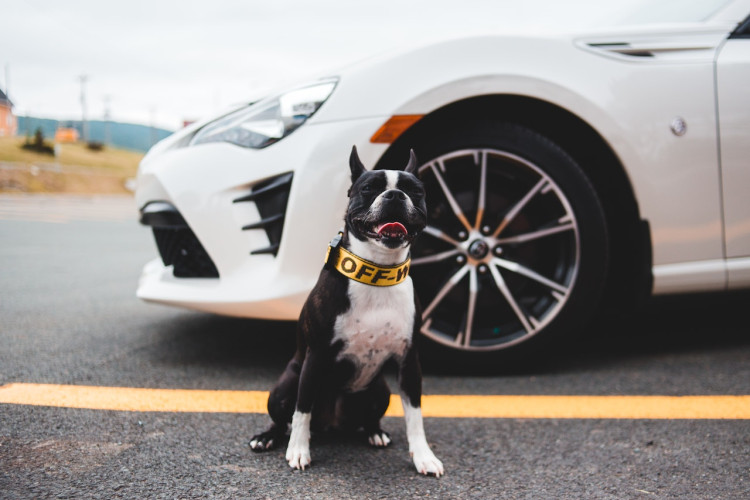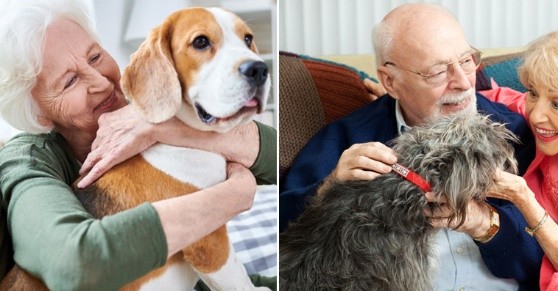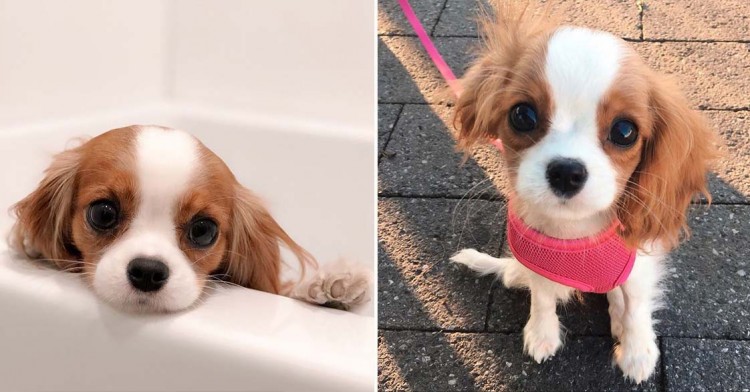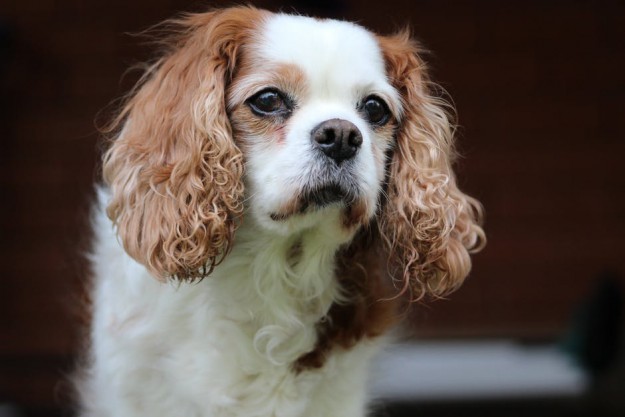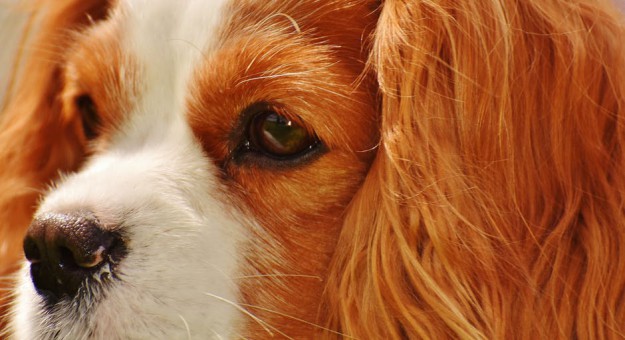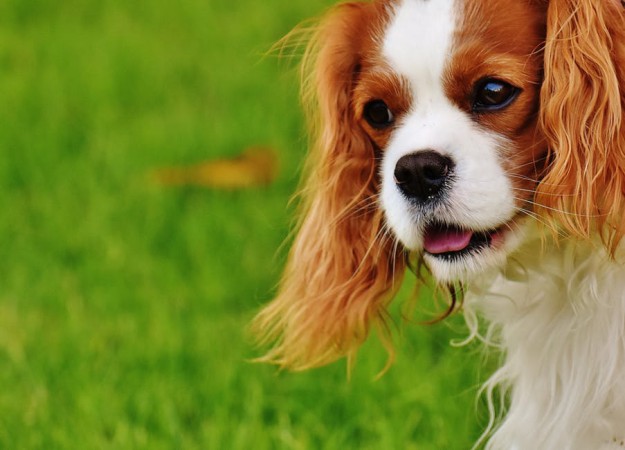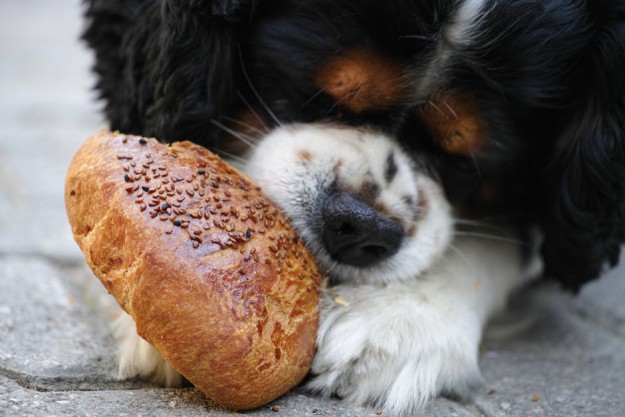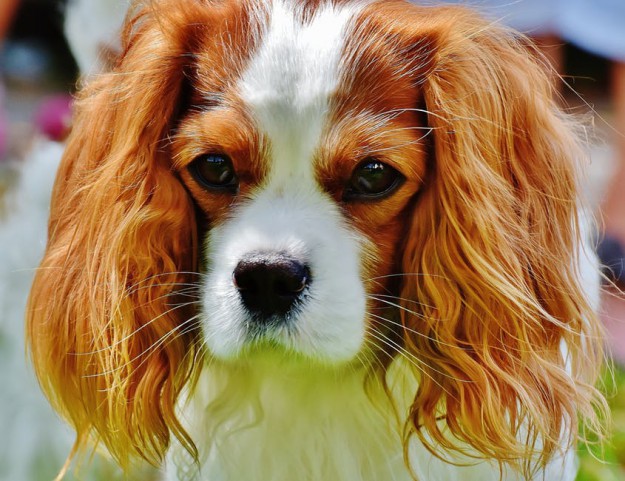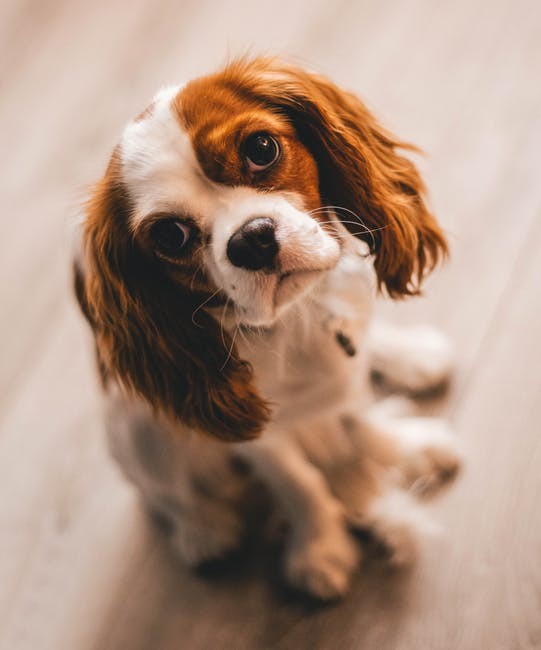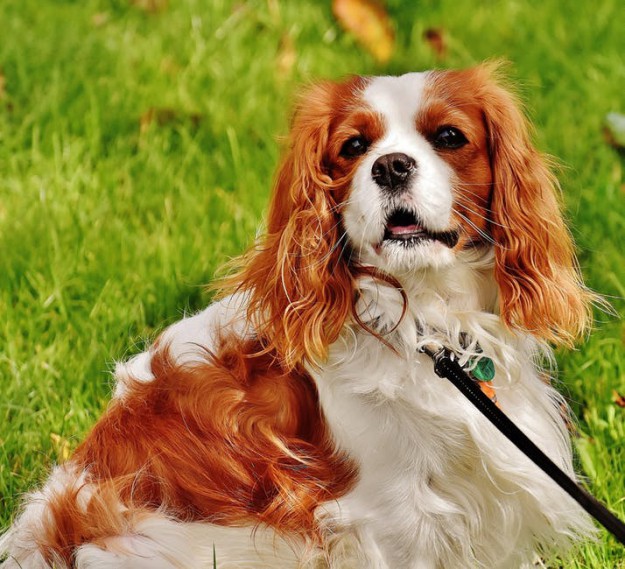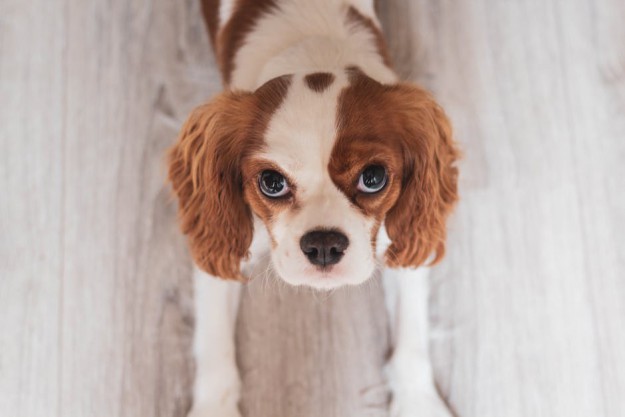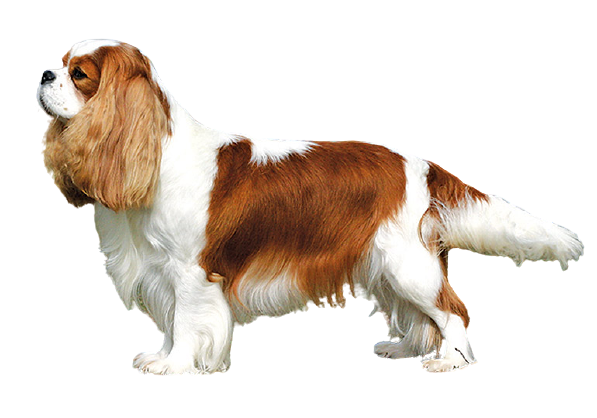
Cavalier King Charles Spaniel
USD $1200-$1500 Price Avg.
Companion Dogs
Group
Purebred
Breed Type
Small
Size
10-14 years
Lifespan
Breed Information
| Group | Companion Dogs |
|---|---|
| Popularity/Rank | 19 |
| Origin | England |
| Other Names | Cav, Cavalier, Cavie |
| Breed Type | Purebred |
| Price (Avg.) |
USD $1200-$1500
How much does it cost to purchase a Cavalier King Charles Spaniel? The price of a Cavalier King Charles Spaniel will vary from breeder to breeder as well as from place to place. As a rough guide, you should expect to pay between $1200 to $1500 per Cavalier King Charles Spaniel if you purchase from a reputable breeder. Prices will be higher for show-quality dogs with a distinguished pedigree. Adult dogs who have already been trained may cost even more. It is usually less expensive to adopt a Cavalier King Charles Spaniel through a shelter. |
| Size | Small |
| Weight | 10-18 pounds (5-8 kg) |
| Height | 12-13 inches (30-33 cm) |
| Lifespan | 10-14 years |
| Recognized by |
AKC, FCI
The American Kennel Club in 1995 as a Toy breed. And FCI in the Companion and Toy Dogs group, in the English Toy Spaniels section. |
| Purpose | flushing small birds, lapdog |
| Date of Origin | 1600s |
| Ancestry | Blenheim, Red and white king charles, Toy trawler spaniels |
Appearance & Maintenance
| Coat | Feathered |
|---|---|
| Coat Colors | Blenheim, Ruby, Tan, Tricolor |
| Grooming Level | |
| Shedding Level | |
| Eye Color Possibilities | Brown |
| Nose Color Possibilities | Black |
| Coat Color Possibilities | Black, Red, White |
| Coat Length | Large |
| Coat Density | Normal |
| Coat Texture | Straight |
| Recommended Brushes | Comb, Nail Clipper, Pin Brush, Scissors |
| Brushing Frequency | Daily |
Breed Characteristics
| Temperament | Active, Affectionate, Cheerful, Courageous, Dar, Entertaining, Fearless, Friendly, Gentle, Graceful, Intelligent, No tendency towards nervousness, Nonaggressive, Polite, Quiet, Social, Sporty |
|---|---|
| Intelligent | |
| Trainability | |
| Playfulness | |
| Sensitivity Level | |
| Affection Level | |
| Social Interaction Required | |
| Barking | |
| Watchdog Ability | |
| Territorial | |
| Biting Force | Low |
| Mouthiness | |
| Impulse to Wander or Roam | |
| Prey Drive | |
| Adaptability | |
| Tolerates Being Left Alone | |
| Fighting Dog | Not really |
Good & Friendly with
| Apartment Life Friendly | |
|---|---|
| Stranger Friendly | |
| Kid-Friendly | |
| Cat Friendly | |
| Dog Friendly | |
| Office Friendly | No |
| Senior Citizens Friendly | |
| Pet Friendly | |
| Friendly with First Time Owners | No |
| Service Dog | Not really |
| Therapy Dog | Yes |
| Detection, Sniffer or Security Dog | Not really |
| Search and Rescue Dog (SAR) | Not really |
| Boat Dog | Not really |
| Cart Pulling or Drafting Dog | Not really |
Health Elements
| Health Issues | |
|---|---|
| Health Problems | Dry Eye, Episodic Falling Syndrome, Hip Dysplasia, Mitral Valve Disease, Patellar Luxation, Syringomyelia |
| Hypoallergenic | No |
| Energy Level | |
| Exercise Required | |
| Sleeping Required | |
| Weight Gain Potential | |
| Weather & Climate | Tolerates warm and cold weather. |
| Stinkiness | High |
| Drooling tendency | |
| Activity Level | Moderate |
| Rec. Walk Mileage Per Week | 6 miles |
| Minutes of Activity Per Day | 30 minutes |
Food & Costing
| Avg. Daily Food | 1 to 1.5 cups of high-quality dry food a day, divided into two meals. |
|---|---|
| Cups Per Day | 1 cups |
| Daily Cost | $0.75 - $1.00 |
| Monthly Cost | $25.00 - $30.00 |
Reproducibility
| Gestation Duration | 60-64 days |
|---|---|
| How often can the Cavalier King Charles Spaniel have a litter? | Once a year. |
| Litter Size | 3-5 puppies (Once a year.) |
Description
The Cavalier King Charles Spaniel is a small, friendly, and loyal breed of dog that has been popular for centuries. They are known for their sweet and gentle nature, making them an ideal companion for families. The Cavalier King Charles Spaniel is a medium-sized breed with a long, silky coat that comes in four colors: Blenheim (red and white), Tricolor (black, white, and tan), Ruby (solid red), and Black & Tan. They have large eyes that are usually dark brown or black in color.
The average lifespan of the Cavalier King Charles Spaniel is between 12 to 15 years. They typically weigh between 13 to 18 pounds when fully grown and stand at around 12 to 13 inches tall at the shoulder.
The personality of the Cavalier King Charles Spaniel is one of its most endearing traits; they are affectionate, gentle, loving dogs who thrive on human companionship. They are also very intelligent and eager to please their owners which makes them easy to train.
Cavaliers are generally friendly with other dogs as well as children and other animals if they have been properly socialized from an early age. However, it’s important to remember that all dogs should be supervised when interacting with children or other animals just in case any problems arise.
The temperament of the Cavalier King Charles Spaniel is generally calm but alert; they can be quite active when playing but will settle down quickly once playtime is over. This makes them great family pets as they can adapt easily to different environments without becoming overly anxious or stressed out by changes in routine or environment.
When it comes to health issues, the Cavalier King Charles Spaniel can suffer from some common canine health problems such as heart murmurs, eye diseases like cataracts or glaucoma, hip dysplasia (malformation of the hip joint) as well as luxating patellas (dislocation of the kneecap). It’s important for potential owners to research these conditions before getting a puppy so they know what signs/symptoms may indicate a problem later on down the line.
In terms of adaptability level; Cavaliers do well in both urban and rural settings due their size but may need more exercise if living in an apartment setting due their energy levels being higher than some other breeds such as Bulldogs or Pugs who tend to be more laid back indoors than outdoors . The benefits of having a Cavalier King Charles Spaniel include having an incredibly loyal companion who loves nothing more than spending time with you!
History
The Cavalier King Charles Spaniel is a small spaniel classed as a toy dog by The Kennel Club and the American Kennel Club. It is one of the most popular breeds in the United Kingdom. The breed standard for appearance does not specify a weight limit, but most are between 12 and 18 pounds (5.4 and 8.2 kg).
The Cavalier King Charles Spaniel originated in England during the reign of King Charles II (1630–1685), who adored his toy Spaniels. King Charles II kept many Spaniels as pets, particularly those with long, silky ears and flat faces—the forerunners of today's Cavalier.
During the early 1800s, English Toy Spaniels began to fall out of favor with English royalty. In an attempt to revive interest in the breed, breeders began to cross Toy Spaniels with other similar breeds, such as Pugs and King Charles Spaniels. This resulted in a Toy Spaniel with a slightly different appearance than the original English Toy Spaniel—a dog with a longer nose and shorter ears.
Despite their efforts, English Toy Spaniels continued to decline in popularity, and by World War I, they were on the brink of extinction. Fortunately, American breeders took an interest in the English Toy Spaniel and began importing them to the United States.
The American Kennel Club recognized the English Toy Spaniel in 1886 under the name "King Charles Spaniel". In 1927, the AKC renamed the breed "Cavalier King Charles Spaniel" to distinguish it from its ancestor, the King Charles Spaniel—a smaller version of today's Cavalier that had been bred for hunting rather than companionship.
Today's Cavalier is largely unchanged from its royal roots; it is still an affectionate companion dog that loves spending time with its human family. Thanks to its regal history and gentle disposition, the Cavalier has become one of America's favorite companion dogs.
Cavalier King Charles Spaniel Posts
Explore Cavalier King Charles Spaniel's photos, videos, activities, stories, and facts.




